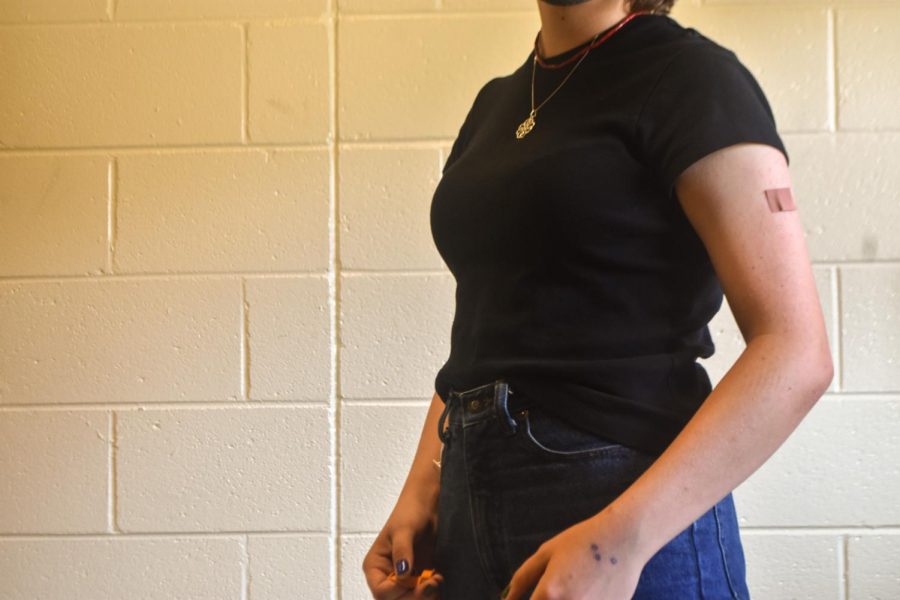Vaccine mandate: more than meets the eye
The United States finds itself in a polarized position as the debate centering around COVID-19 vaccine mandates rages on. “I think there needs to be an open dialogue about what is going to be best for education including taking into account vaccinated or unvaccinated people. This shouldn’t create division. It should just be freedom of medical choice,” NC art teacher Karrie Arana said.
September 3, 2021
The conversation around vaccination mandates begins to spark up as schools and businesses gradually return to normalcy. While the idea of a mandate typically comes from a good place, those participating in the discussion should beware that the topic becomes far more complicated as one delves into its practicality. Such a wide-scale idea requires rigorous enforcement which can impact personal freedoms, as well as necessary measures to accompany those who can not receive the vaccine.
“I don’t think a mandate could be enforced because of the backlash of the public. Unanimous agreement is hard, even with light topics. If it were to be mandated it would be easy to lie and say you did when you didn’t,” NC junior Rei Denton said.
To require all of those eligible for COVID-19 vaccinations to receive them would simultaneously necessitate effective proof of vaccination. Proof currently exists in the form of vaccination cards, however, cases of forgery already pop up across the country as conspiracies like that seen recently in Manhattan arise in response to stricter COVID-19 safety protocols in public and private spaces. The Manhattan District Attorney’s Office revealed to the public that authorities found thirteen frontline healthcare workers guilty of purchasing forged vaccination cards. Without an effective manner of proof, a vaccine mandate quickly becomes pointless as those uninterested in receiving the shots find ways around it. Of course, medical records show the truth as to whether or not someone has gotten the vaccine, but to require access to someone’s medical records serves as a direct violation of HIPPA.
“I do not believe vaccination should be mandatory because it impedes medical freedom. It’s taking into account that everyone is going to react the same to it,” NC art teacher Karrie Arana said.
While the government does not currently enforce a mandate, private businesses have started the process of requiring vaccinations for guests and employees. Restaurants have begun to enforce strict vaccine regulations despite the fact that surveys show that one-third of Americans find themselves deterred from restaurants requiring proof of vaccination. Such a large portion of the population no longer eating out or participating in their local economy could only add to the damage done to it from the initial quarantine.
The mandate, while potentially extremely beneficial, should not reach a federal level without extreme measures taken to take into account those who cannot get it, and how it may affect the already struggling economy, and provide noninvasive and effective manners of proof. However, private businesses should possess the ability to require proof of vaccination from their employees as that falls on a much smaller scale and more unique cases in terms of who can receive the vaccine can see more individual attention. While the public continues to toy with the idea, a much simpler way of preventing the virus spread exists.
Despite the debate around them, the CDC has shown that masks make for an effective way to slow the infection rate. A mask mandate would serve as an easily enforced, non-invasive and effective way to keep people safe as things return to normalcy.







